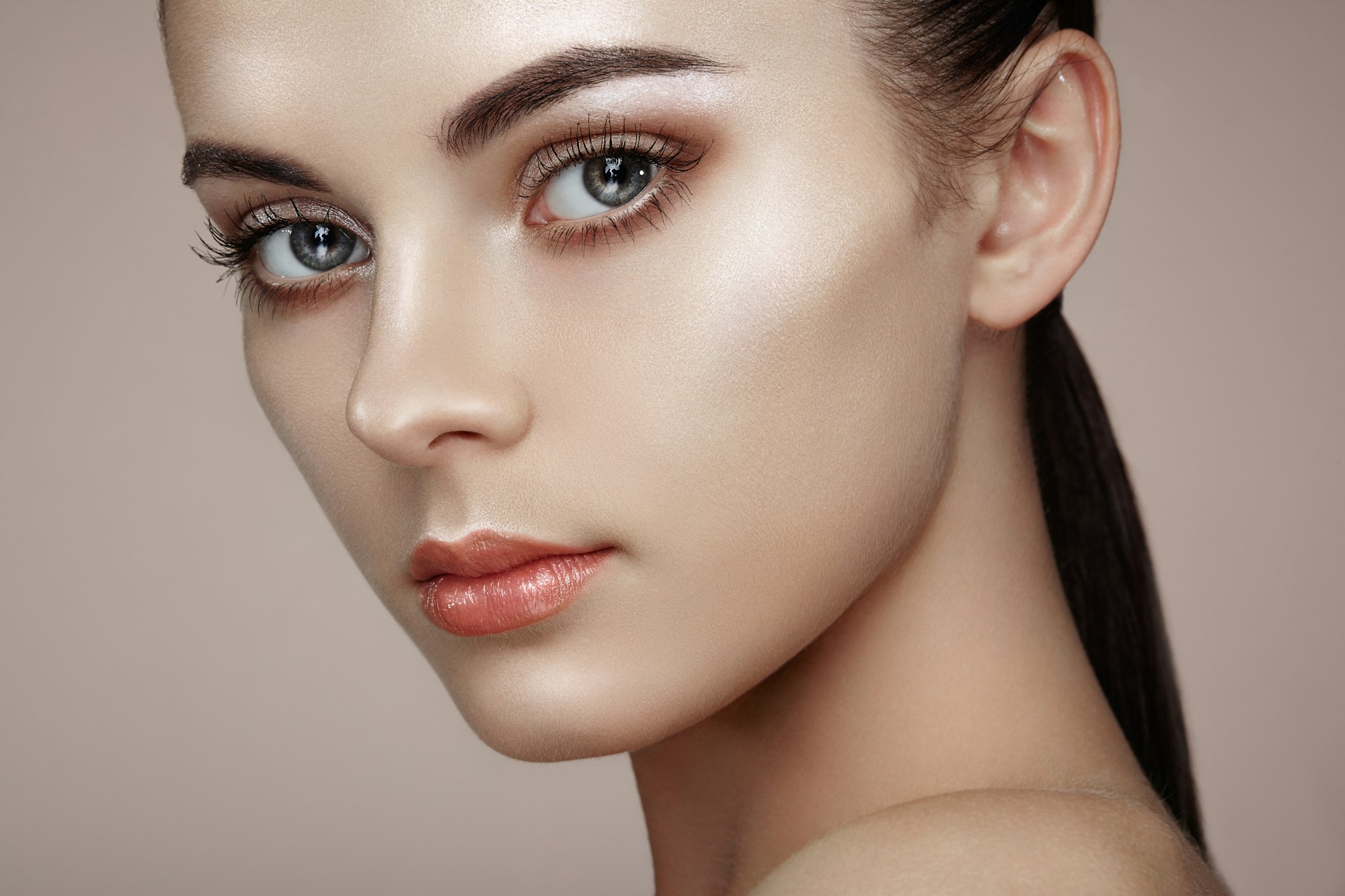Unravel the secrets of dehydrated skin and aging with essential insights that can transform your skincare routine. Understanding the correlation between these factors is pivotal for maintaining a youthful complexion. Dive into the historical context of skincare practices to uncover timeless remedies that combat the effects of dehydration on aging skin. Discover how simple adjustments can yield remarkable results in revitalizing and rejuvenating your skin. Stay tuned for expert tips and recommendations to address dehydrated skin concerns effectively, helping you embrace a radiant and age-defying appearance effortlessly.
Understanding Dehydrated Skin
Definition
Dehydrated skin is a condition characterized by insufficient water content in the skin. It occurs when the skin lacks hydration, leading to a dull, rough complexion.
Dehydrated skin is not the same as dry skin; it is a temporary issue that can affect individuals with all skin types. Dehydrated skin guide emphasizes the importance of distinguishing between dehydrated and dry skin to address specific concerns effectively.
Causes and Effects
Factors like weather conditions, harsh skincare products, and poor lifestyle habits can contribute to dehydrated skin reveals. When the skin lacks proper hydration, it may result in premature aging signs such as fine lines, wrinkles, and loss of elasticity.
Pros:
-
- Easily treatable with proper skincare routines.
- Can be managed by increasing water intake and using hydrating products.
Cons:
-
- If left untreated, dehydrated skin can exacerbate other skin issues.
- May lead to a compromised skin barrier and increased sensitivity.
Recognizing the signs of dehydrated skin is crucial to prevent further damage and maintain healthy skin. By incorporating hydration-rich products and adopting a balanced lifestyle, individuals can effectively combat dehydrated skin and its associated effects.
Dry Skin vs Dehydrated Skin
Dry Skin
Dry skin is characterized by a lack of oils, leading to a dry appearance with possible flakes and patches. It is primarily a skin type determined by genetics and tends to be a long-term condition. Individuals with dry skin often experience tightness and roughness.
Dehydrated Skin
On the other hand, dehydrated skin results from a lack of water in the skin, causing it to look dull and feel tight. Unlike dry skin, which is genetic, dehydrated skin is a temporary condition that can occur due to various factors like weather changes, diet, or skincare products.
Skincare Differences
To address dry skin, it’s crucial to use moisturizers that provide the necessary oils to hydrate and nourish the skin. Look for emollients and occlusives in your skincare products to lock in moisture and prevent water loss. Gentle exfoliation can help remove dead skin cells and improve texture.
For dehydrated skin, focus on hydration by incorporating products with humectants like hyaluronic acid that attract moisture to the skin. Serums and ampoules containing hydrating ingredients can help replenish lost water and restore the skin’s natural moisture balance.
Pros and Cons
Dry Skin:
- Pros: Less prone to acne breakouts due to lower sebum production.
- Cons: More susceptible to premature aging and fine lines due to reduced elasticity.
Dehydrated Skin:
- Pros: Can be easily treated with proper hydration.
- Cons: Prone to sensitivity, irritation, and a compromised skin barrier.
Assess Skin with Pinch Test
Performing Pinch Test
To assess skin hydration levels, performing the pinch test is a quick and effective method. Simply pinch the skin on the back of your hand and hold for a few seconds.
Interpreting the Results
Slow skin bounce-back after releasing the pinch indicates dehydration. Hydrated skin will quickly bounce back to its normal position when pinched.
Regular Monitoring
Using this simple method regularly allows you to monitor changes in your skin’s hydration levels over time. It’s a convenient way to track improvements or identify potential issues.
Signs of Dehydrated Skin
Common Signs
Dehydrated skin manifests through various common signs. Dullness is a prevalent indicator, making the skin appear lackluster and tired. Fine lines may start to appear more prominently, emphasizing the need for hydration. Sensitivity is another notable sign, causing discomfort and irritation.
Specific Symptoms
Specific symptoms of dehydrated skin can offer crucial insights. Darker under-eye circles often indicate severe skin dehydration, highlighting the urgency of addressing moisture levels. Itchiness is another symptom that can signal underlying issues, urging individuals to take proactive measures.
Recognizing these signs and symptoms early is essential for effective treatment. By identifying dry spots, individuals can address dehydration before it escalates. Conducting a dehydration skin test can provide valuable information on the skin’s condition, guiding appropriate skincare routines.
Effects of Water Deficiency on Skin
Skin Barrier Function
Dehydration can compromise the skin’s natural barrier function, leading to increased skin problems such as dryness and flakiness. When the skin lacks adequate hydration, it struggles to retain moisture, causing it to become dull and lackluster.
The skin’s barrier is crucial for protecting against external aggressors and maintaining overall skin health. Without sufficient water intake, this barrier weakens, making the skin more susceptible to environmental pollutants and UV damage. As a result, the skin may appear rough and uneven, emphasizing signs of aging.
Increased Sensitivity and Irritation
One of the key consequences of water deficiency is the potential for increased skin sensitivity and irritation. Dehydrated skin is more prone to inflammation and redness, making conditions like eczema and psoriasis worse. Lack of hydration can also exacerbate existing skin conditions, causing discomfort and itchiness.
Moreover, dehydration can disrupt the pH balance of the skin, leading to a compromised acid mantle. This protective layer helps prevent bacteria and pollutants from penetrating the skin. When this barrier is weakened due to water deficiency, it can trigger skin problems like acne and dermatitis.
Role of Hydration in Skin Elasticity
Hydration plays a vital role in maintaining skin elasticity and firmness. Collagen, a protein responsible for skin structure, requires water to function effectively. When the skin is dehydrated, collagen production decreases, leading to sagging and wrinkles. By staying well-hydrated, you can help preserve your skin’s youthful appearance and delay the onset of aging signs.
Proper hydration also supports the skin’s natural regeneration process. It aids in cell turnover, allowing new, healthy cells to replace damaged ones efficiently. This renewal process is essential for maintaining a radiant complexion and preventing premature aging.

Appearance of Fine Lines and Wrinkles
Skin Dehydration and Fine Lines
Dehydrated skin can accentuate the appearance of fine lines due to a lack of moisture. When the skin lacks hydration, wrinkles become more prominent, making them more visible. This emphasizes the importance of maintaining optimal skin hydration levels.
Hydration Levels and Skin Elasticity
Skin elasticity is closely linked to hydration levels. Properly hydrated skin tends to be more elastic and supple, reducing the likelihood of developing fine lines and wrinkles. Moisture helps maintain the skin’s firmness, preventing premature aging signs.
Addressing Dehydration for Youthful Skin
Treatments for Dehydrated Skin
Hydrating Ingredients
Hyaluronic acid and glycerin are excellent choices to combat dehydrated skin. These ingredients help attract and retain moisture, restoring hydration levels in the skin. Look for skincare products containing these hydrating components for optimal results.
Water-Rich Foods
In addition to topical treatments, incorporating water-rich foods into your diet can significantly impact skin hydration. Fruits like watermelon, cucumber, and oranges, along with vegetables such as lettuce and spinach, are great options. These foods not only hydrate the body internally but also contribute to overall skin health.
Topical Moisturizers
Using topical treatments specifically formulated to restore moisture balance is crucial for treating dehydrated skin. Opt for moisturizers that contain ingredients like ceramides, shea butter, and niacinamide. These components help strengthen the skin barrier, prevent moisture loss, and improve the skin’s overall texture.
Tips for Hydrating Your Skin
Drinking Water
Staying hydrated is crucial for proper skin hydration. Make sure to drink plenty of water throughout the day to keep your skin moisturized from within. Water helps in maintaining hydration levels and promoting healthy skin.
Using a Humidifier
In dry environments, such as heated indoor spaces during winter, consider using a humidifier. A humidifier helps add moisture to the air, preventing dehydration of the skin due to environmental factors. This simple addition can significantly impact your skin’s lasting hydration.
Hydrating Serums and Creams
Incorporate hydrating serums and creams into your daily skincare routine. These products are specifically formulated to provide intense moisture to the skin, helping combat dehydrated skin and improving overall skin health. Look for products recommended by skin health experts for the best results.
Benefits of Proper Skin Hydration:
- Improved skin texture and elasticity
- Reduction in the appearance of fine lines and wrinkles
- Enhanced overall skin health and appearance
Consistency is Key:
- Establishing a special hydrating skincare routine is essential for maintaining hydration levels in the skin.
- Consistently using a deep hydrating moisturizer can help lock in moisture and prevent dehydration.
- Regularly applying a hydrating serum can provide an extra boost of hydration, especially for those with oily skin types.
Preventing Dehydrated Skin
Consistent Routine
Maintaining a consistent skincare routine is crucial in preventing skin dehydration. Incorporate products that focus on both hydration and moisturization to keep your skin healthy and supple.
Gentle Cleansers
Opt for gentle cleansers that do not strip the skin of its natural oils. Harsh cleansers can exacerbate dehydration, leading to the formation of dehydration lines.
Lifestyle Changes
Make necessary lifestyle changes to combat chronic dehydration. Ensure you consume a balanced diet rich in moisture-retaining foods and drink an adequate amount of water daily.
Summary
Understanding the difference between dry and dehydrated skin, assessing your skin’s condition, recognizing signs of dehydration, understanding the effects of water deficiency, and learning about treatments and prevention are crucial steps in maintaining healthy skin. By following the tips provided, you can effectively hydrate your skin and prevent further damage. Remember, hydration is key to combating premature aging and maintaining a youthful appearance. Take action now to prioritize your skin’s health and well-being.
Revitalize Your Skin with the Best HydraFacial for Dehydrated Skin!
No other HydraFacial treatment for dehydrated skin compares to ours at Simply Skin Esthetics in downtown Walnut Creek, California. Why? We blend cutting-edge techniques, premium materials, and years of expertise to deliver deep, lasting hydration for even the most sensitive skin types – all with the highest standards of professionalism and hygiene.
Finding an esthetician who can cater to your dehydrated skin needs with a HydraFacial in a compassionate, kind, and professional manner can be challenging. That’s why our service stands out as the best in the San Francisco East Bay Area. Our commitment to exceptional care is evident in our loyal clientele.
At Simply Skin Esthetics, we offer more than just HydraFacials. Our extensive range of services includes Ultrasound Facials, Signature Facials, Men’s Facials, Express Facials, Treatments/Peels, Teen Facials, and Back Facials. Ready to transform your skin and experience unparalleled hydration? Contact us today to schedule your first session and discover the Simply Skin Esthetics difference!
Don’t wait – your journey to radiant, hydrated skin starts here.


